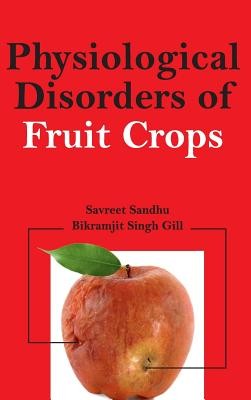
- We will send in 10–14 business days.
- Author: Savreet Sandhu
- Publisher: NIPA
- Year: 2013
- Pages: 220
- ISBN-10: 9381450587
- ISBN-13: 9789381450581
- Format: 15.2 x 22.9 x 1.4 cm, hardcover
- Language: English
- SAVE -10% with code: EXTRA
Reviews
Description
Physiological or abiotic disorders are mainly caused by changing environmental conditions such as temperature, moisture, unbalanced soil nutrients, inadequate or excess of certain soil minerals, extremes of soil pH and poor drainage. The distinction between physiological or abiotic disorders from other disorders is that they are not caused by living organisms (viruses, bacteria, fungi, insects, etc.), but they are the result of abiotic situations (inanimate) i.e. their agents are non-living in nature which causes deviation from normal growth. They results in physical or chemical changes in a plant which is far away from what is normal and is generally caused by an external factor. Non-infectious disorders in some cases are easy to identify, but others are difficult or even impossible to recognize. Most of them are non reversible once they have occurred. For the identification of physiological disorders it is important that one must know that: a) Physiological disorders are often caused by the deficiency or excess of something that supports life or by the presence of something that interferes with life. b) Physiological disorders can affect plants in all stages of their development. c) They are non-transmissible because they occur without or in absence of infectious agents. d) Plant reacts differently to the same agent and sometimes response is seen as a little reaction to death. e) Dealing with physiological disorders often means dealing with the consequences from a past event. f) Generally damaged and undamaged tissue is clearly demarcated. g) Physiological disorders not only causes damage themselves but also serve as the 'open door' (entry) for pathogens.
- Author: Savreet Sandhu
- Publisher: NIPA
- Year: 2013
- Pages: 220
- ISBN-10: 9381450587
- ISBN-13: 9789381450581
- Format: 15.2 x 22.9 x 1.4 cm, hardcover
- Language: English English
Physiological or abiotic disorders are mainly caused by changing environmental conditions such as temperature, moisture, unbalanced soil nutrients, inadequate or excess of certain soil minerals, extremes of soil pH and poor drainage. The distinction between physiological or abiotic disorders from other disorders is that they are not caused by living organisms (viruses, bacteria, fungi, insects, etc.), but they are the result of abiotic situations (inanimate) i.e. their agents are non-living in nature which causes deviation from normal growth. They results in physical or chemical changes in a plant which is far away from what is normal and is generally caused by an external factor. Non-infectious disorders in some cases are easy to identify, but others are difficult or even impossible to recognize. Most of them are non reversible once they have occurred. For the identification of physiological disorders it is important that one must know that: a) Physiological disorders are often caused by the deficiency or excess of something that supports life or by the presence of something that interferes with life. b) Physiological disorders can affect plants in all stages of their development. c) They are non-transmissible because they occur without or in absence of infectious agents. d) Plant reacts differently to the same agent and sometimes response is seen as a little reaction to death. e) Dealing with physiological disorders often means dealing with the consequences from a past event. f) Generally damaged and undamaged tissue is clearly demarcated. g) Physiological disorders not only causes damage themselves but also serve as the 'open door' (entry) for pathogens.


Reviews